|
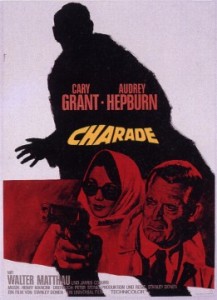
Synopsis:
A young widow (Audrey Hepburn) pursued by three ex-compatriots (James Coburn, George Kennedy, and Ned Glass) of her deceased husband seeks solace and protection from a mysterious but friendly man (Cary Grant), who may or may not be equally interested in obtaining the $250,000 her husband supposedly had in his possession.
|
|
Genres, Themes, Actors, and Directors:
- Audrey Hepburn Films
- Cary Grant Films
- George Kennedy Films
- James Coburn Films
- Mistaken or Hidden Identities
- Murder Mystery
- Stanley Donen Films
- Walter Matthau Films
- Widows and Widowers
Review:
Infamously referred to as the “best Hitchcock film Hitchcock never made”, this Stanley Donen-directed romantic thriller has a lot going for it — including the only on-screen pairing of Cary Grant and Audrey Hepburn (who apparently loved working together), a clever script which offers plenty of surprises and violent shocks, and an overall air of breezy Parisian chic. Given its obvious credentials — and the wonderfully escapist enjoyment it offers — I was puzzled about my own niggling reticence with labeling it a true “classic”, until I read DVD Savant’s insightful (as always) review and realized I agree with his assessment that the film’s “only drawback [is]… a serious case of ‘the cutes’, a malady that seems to affect many ’60s films that want to capture a tongue-in-cheek cleverness.” Savant points out that “every word out of the mouths of Cary Grant and Audrey Hepburn is a guaranteed clever comeback, smart remark or flip observation, each delivered with more drollery than the last”; indeed, my primary complaint about the film is how easily Hepburn is able to glibly switch her focus back (again and again) to flirting with Grant, in the midst of her life being seriously in danger. Perhaps this is a function of the script having been changed (at the request of Grant) to make the much-younger Hepburn Grant’s pursuer, rather than the other way around; is it possible the same behavior coming from a man wouldn’t be quite so discomfiting?
At any rate, despite this minor complaint, the film as a whole remains eminently enjoyable, and is guaranteed to keep you glued to the screen as you watch in anticipation to see which of the candidates (is it one of the three “baddies”, or the ever-elusive Grant himself?) will ultimately prove to be the real menace. Chances are you won’t guess correctly. Meanwhile, Donen makes very effective use of (largely) on-site locations in Paris; the performances (both lead and supporting) are all top-notch; and Hepburn is as lovely as ever in Givenchy (though it’s too bad she doesn’t get a chance to dress in at least one evening gown… oh well!). Hepburn and Grant possess fine chemistry together; Grant’s concerns about being too old as a romantic lead for her (perhaps in reaction to the lambasting Gary Cooper received after Love in the Afternoon) are ultimately unfounded. The final plot twist — where exactly is that stash of a quarter million dollars hidden? — is very cleverly handled as well.
Redeeming Qualities and Moments:
- Audrey Hepburn as Regina Lampert
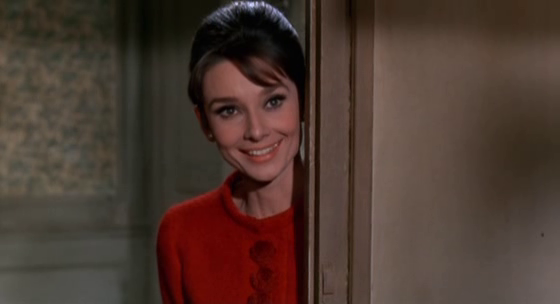
- Cary Grant as “Peter Joshua”
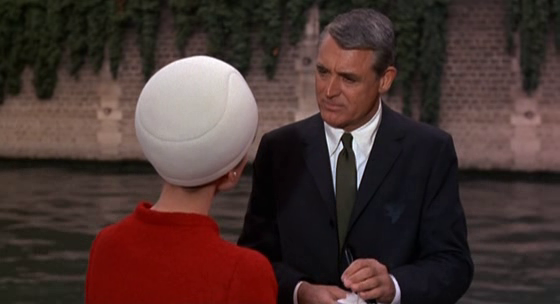
- James Coburn as “Tex”
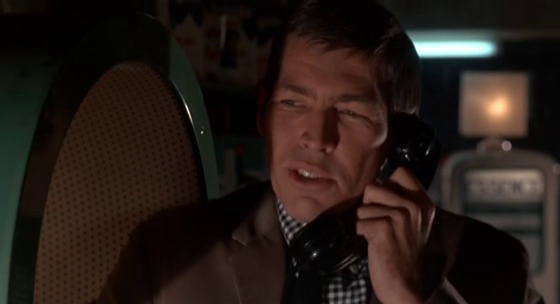
- Fine use of authentic Paris locales
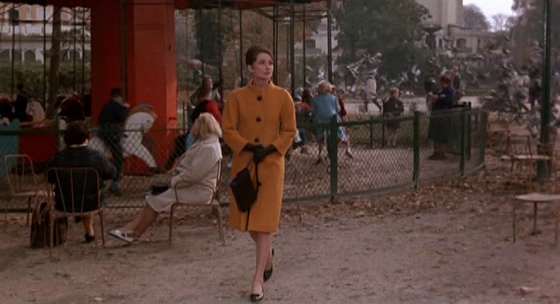
- Lovely Givenchy outfits
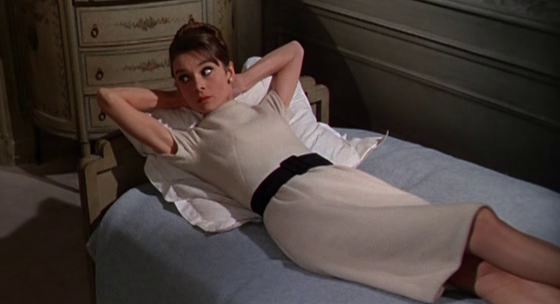
- Maurice Binder’s stylish opening titles

Must See?
Yes, as a stylishly classic thriller.
Categories
Links:
|







One thought on “Charade (1963)”
Not a must, tho it’s pleasantly diverting in a date night sort of way. At least, that’s my feeling for the average ff. This kind of commercial entertainment often does little for me personally.
Grant and Hepburn do seem to have chemistry but I still had to suspend disbelief. (Although I reminded myself that ‘Charade’ is basically fluff. One can’t think too deeply about what’s going on – i.e., Hepburn marrying a man she did not know at all, apparently just for his money, so what are we to think of *her* as a result?!…oh, and all those great-looking outfits even though her apartment has been ransacked…oh, and she shows up once for her job as a translator, only to make us wonder how she ever got the job…etc.). Grant seems to be walking through it to a degree (although he becomes rather effective in the latter scenes). Hepburn is not that much of a comedienne when she needs to be; the limits of her range kind of show.
(With the way Hepburn is ‘terrorized’ throughout, this is almost the comedic version of ‘Wait Until Dark’ – which, of course, Hepburn would make a few years later.)
I’m a tough audience when it comes to comedy. The script for this does have some good lines, just not nearly enough to suit me. (Grant showering with his clothes on is a kind of highlight; the two stars seem to be having real fun there.)
I did figure out the real culprit midway but the wrap-up works well and the actual conclusion is a nice touch.